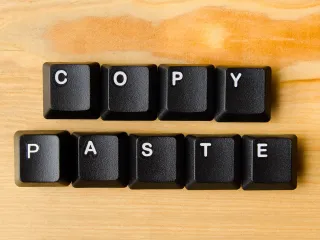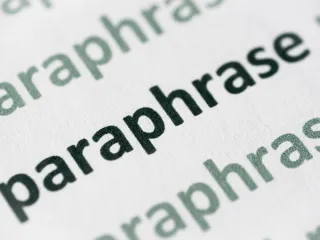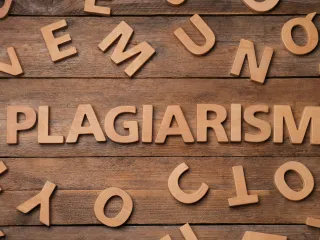Contract cheating is a term that has gained significant attention in recent years (and for good reason, too). This form of academic misconduct entails enlisting the help of an external party to complete your assignments.
Sometimes, it’s as simple as asking your friend to do that essay you’ve been dreading. And other times, it’s paying a company directly to gain access to pre-written papers and additional academic support. Either way, this highly unethical practice presents a grave danger to the trustworthiness of educational establishments worldwide and must be taken seriously.
In this blog post, we’ll explore the various forms and consequences of contract cheating and delve into the intricacies. Additionally, we’ll discuss how laws addressing contract cheating differ across countries, shedding light on the global efforts to combat this issue.
Moreover, we’ll provide you with real-life examples of academic misconduct and its repercussions to help you gain a better understanding. And lastly, we’ll differentiate between plagiarism and contract cheating: two terms that are often used interchangeably but have distinct implications.
By comprehending these critical aspects, you’ll understand why it’s essential to care about contract cheating and take necessary measures to uphold academic honesty in higher education. So, let’s get started, shall we?
What is Contract Cheating?
Contract cheating is a form of academic dishonesty where students engage with third parties to complete their coursework or swap papers, even if no money is exchanged. This unethical practice undermines the integrity of education and simultaneously devalues the hard work put in by honest students, thus making it worthy of discourse.
The term “contract cheating” was first coined by Robert Clarke and Thomas Lancaster in 2006 as they observed various cases where students were outsourcing their assignments to others. Today, this form of cheating is more prevalent than ever, with millions of students worldwide partaking in it.
Contract cheating involves family members or friends completing coursework on behalf of a student but also extends to professional services that offer customized essays or exam answers for a fee. Either way, all forms of this practice are highly unethical and pose many serious risks.
Here are some of the severe consequences of contract cheating:
- Suspension or expulsion: Educational institutions take plagiarism seriously, which means engaging in contract cheating could lead to suspension or expulsion from school.
- Damaged reputation: Being caught participating in such activities can tarnish your personal and professional reputation within academia and beyond.
- Limited future opportunities: A history of academic dishonesty can impact your chances of getting into a reputable college or securing a job.
Needless to say, stay away from academic misconduct! Countless students believe that contract cheating isn’t as bad as plagiarism or traditional cheating, but in reality, it’s just as unethical. Any form of dishonesty is essentially immoral, and violating academic integrity principles is bound to come with consequences.
In a nutshell, this is not a path you want to go down. Contract cheating holds the potential to permanently destroy your academic career, which is just about the last thing you want as a student. It’s essential to stay truthful to yourself and uphold the values of your educational institution for the betterment of society.
Are Contract Cheating Laws the Same Everywhere?
Contract cheating laws and regulations vary across different countries, with some having stricter measures than others. In this section, we will discuss how contract cheating is perceived and dealt with in various locations worldwide.
United Kingdom
In the United Kingdom, essay mills are considered illegal, and institutions have implemented strict policies to combat contract cheating. Universities often use plagiarism detection software to identify instances of academic dishonesty.
New Zealand
New Zealand has also taken a strong stance against contract cheating by implementing educational campaigns that raise awareness about the negative consequences. Institutions have the authority to impose sanctions on those found guilty of such practices.
Australia
The Australian government has introduced legislation that makes it an offense for anyone to provide or advertise contract cheating services. Penalties include fines up to $110,000 for individuals and $550,000 for corporations involved in these practices.
Singapore & New York, U.S.
In Singapore, providing or advertising academic ghostwriting services can result in fines up to SGD 10,000 or imprisonment under the new Private Education Act. Similarly, in New York, a bill has been proposed to make it illegal for anyone to provide or advertise contract cheating services.
International Efforts Against Contract Cheating
The International Center for Academic Integrity (ICAI) is an organization that promotes academic integrity and works towards eliminating contract cheating worldwide. They organize the annual International Day of Action against Contract Cheating, which raises awareness about this issue among educators, students, and institutions globally.
Overall, though laws concerning contract cheating may vary from country to country, there is a consensus regarding the need to address this type of academic dishonesty. By staying informed about these regulations and promoting ethical practices within your institution, you can contribute to a culture of academic integrity and honesty.
Types of Contract Cheating
Chances are, you might be unaware of some of the tactics considered contract cheating. In this section, we will explore the various types to provide you with a better understanding of this form of misconduct.
Being aware of these methods can help both institutions and individuals take necessary precautions to prevent such dishonest practices. So, without further ado, let’s get right into it!
Ghostwriting
Ghostwriting is a form of contract cheating where someone writes an assignment or paper on behalf of the student without proper attribution. This can include hiring professional writers or asking friends or family members to complete the work.
Outsourcing Student Work
This type of contract cheating involves students delegating their academic tasks to third parties, often through online platforms. These services typically charge a fee for completing assignments, projects, or even taking online exams on behalf of the student.
Essay Mills
Essay mills are websites that sell pre-written essays and papers tailored to meet specific assignment requirements. Students purchase these works intending to submit them as original creations, thus leading to disastrous consequences.
Contract Cheating Sites
Sites like Chegg, Fiverr, and Airtasker allow users to post requests for assistance with academic tasks in exchange for payment. These sites specialize in contract cheating and offer various educational support options for students.
File Sharing
Students may engage in contract cheating by sharing their completed assignments with others or accessing shared files online. This can occur through social media groups, forums, or websites dedicated to academic collaboration.
Contract Cheating Companies
There are copious contract cheating companies worldwide that provide students with academic assistance. Their services range from completing simple assignments to writing complex essays to taking online exams on behalf of the student.
Writing Services
In addition to essay mills, there are numerous writing services that offer custom papers on demand. These businesses typically advertise as legitimate tutoring or editing services but often cross the line into contract cheating by producing original work for students to submit as their own.
Essay Writing
Essay writing is a type of contract cheating that involves individuals or businesses writing essays for students in need. This work is done in exchange for payment and can be fully customized to meet the student’s needs.
From hiring a company to write an essay for you to paying someone to sit for an exam on your behalf, contract cheating can take various forms. To combat academic misconduct, institutions must implement strict policies and invest in resources like plagiarism detection software. All in all, it is vital to inform students of the repercussions of such activities and promote academic honesty.
Real Examples of Contract Cheating + Consequences
With contract cheating skyrocketing in popularity as of late, there are endless real examples that exhibit such behavior. These cases are a reminder that engaging in unethical activities can have severe implications for one’s academic (and professional) life. Take a look:
Australian University Students Caught Using Essay Mills
In a survey of Australian university students, researchers found that over 6% admitted using essay mills or other contract cheating services at least once. Almost instantly, the universities took strict action against these students, including expulsion from their programs and loss of scholarships or financial aid.
UK Student Expelled for Outsourcing Coursework
After accidentally submitting the wrong file, a student in the United Kingdom was caught outsourcing his coursework to an online writing service provider. As a result, he faced expulsion from his course and potentially damaged his career prospects due to the academic dishonesty on his transcript.
New Zealand Diploma Mill Scandal
In New Zealand, several international students were caught purchasing fake diplomas from diploma mills based overseas. This led to an investigation by New Zealand Qualifications Authority (NZQA), resulting in some institutions losing accreditation status and others having their courses suspended until further notice.
Evidently, partaking in contract cheating leads to disastrous consequences down the line. Even one simple impulsive decision can ruin your academic career for good, making it vital to practice academic honesty and stay true to your institution’s core values.
Here’s what happens if you get caught:
- Academic Penalties: Being caught engaging in contract cheating often results in severe academic penalties such as suspension or expulsion from the institution.
- Loss of Scholarships and Financial Aid: Students who are caught cheating may lose their scholarships or financial aid, thus making it difficult for them to continue their education.
- Damaged Reputation: Academic dishonesty can tarnish a student’s reputation among peers, faculty members, and potential employers. This could lead to difficulty finding employment or being accepted into graduate programs.
As you can see, the consequences of contract cheating are severe and far-reaching. It is essential for learners to recognize that taking part in such practices not only endangers their educational accomplishments but can also have lasting consequences on their personal and occupational paths.
By adhering to academic integrity principles and thoroughly checking their work before submitting, students can ensure they achieve success through honest efforts and avoid the pitfalls associated with contract cheating.
Is Contract Cheating Different from Plagiarism?
Before diving into the differences between contract cheating and plagiarism, let’s briefly define the two.
Plagiarism is the act of presenting someone’s work as your own without giving them proper credit or acknowledgment. This can include copying text directly from a source, paraphrasing another person’s ideas without citation, or using someone else’s research findings without permission.
Contract cheating, on the other hand, involves engaging with a third party (such as an essay mill or ghostwriter) to complete academic work on behalf of a student.
While both contract cheating and plagiarism involve dishonesty in academic work, there are some critical differences between them:
- Sources: In cases of plagiarism, students typically copy content from books, articles, websites, or other sources they come across during their research process. With contract cheating services like ghostwriting and essay mills, however, students enlist external help from experts who can create custom content specifically for them.
- Detection: Plagiarism can easily be detected through software tools like Quetext, which compares submitted works to existing sources online and flags potential matches for further investigation. Contract cheating detection may require more investigative efforts, such as analyzing writing styles across assignments or identifying inconsistencies within submissions.
- Motivation: Students who plagiarize might do so out of laziness or a lack of understanding about proper citation practices, whereas those engaged in contract cheating actively seek ways to avoid doing their work altogether.
To combat both forms of academic dishonesty effectively, it’s crucial for educators and institutions to promote a culture of integrity. One way to achieve this is by using trusted tools like Quetext to detect plagiarism and encourage students to submit original academic work.
The benefits of using a plagiarism checker like Quetext include the following:
- Detection: The tool identifies instances of copied or improperly cited content, allowing students to correct their mistakes before submitting the final draft.
- Educational Value: This checker helps students understand the importance of proper citation practices and how to avoid unintentional plagiarism in future assignments.
- Maintaining Academic Integrity: Quetext ensures that submitted works are original contributions from each student, thus upholding institutional standards for honesty and fairness in education.
Overall, while contract cheating may differ from traditional forms of plagiarism, both represent significant threats to academic integrity. By utilizing tools like Quetext and fostering an environment where honest scholarship is valued, we can significantly enhance our educational communities.
Conclusion
In conclusion, contract cheating is a severe violation of academic integrity. Referred to as the act of using third-party services to complete academic work, this form of academic misconduct has several negative implications, including expulsion and limited prospects.
We hope this blog post provided you with ample insight into the world of contract cheating, including its various forms and consequences. It’s vital to be aware of this growing problem to safeguard your academic career and promote integrity and fairness in the educational world.
As you embark on this journey to academic honesty, use Quetext’s plagiarism detector to check your work for copied or improperly cited content. By doing so, you can submit original pieces that align with the core values of your educational institution. This one simple step may very well be the ultimate game-changer.









